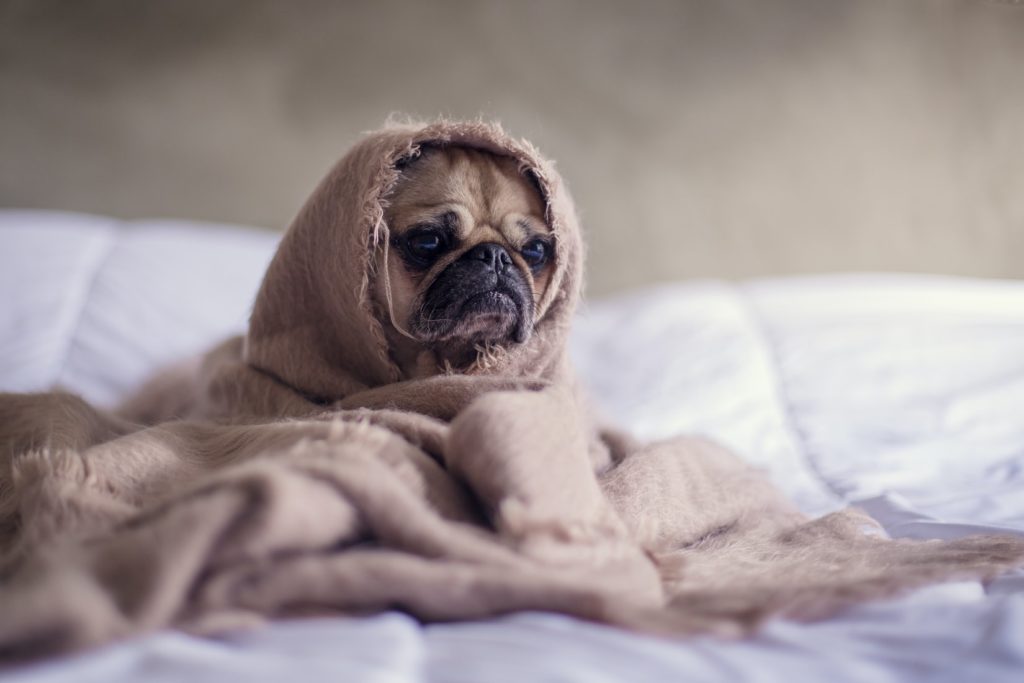Have you had trouble sleeping in the past 8 months? Join the club! In a newly released survey including 2000 American adults, 51% reported that 2020 was their worst year of sleep ever.
At the risk of sounding like Captain Obvious here, sleep is really important to your health and fitness.
If you follow our blog, you know that insomnia makes it difficult to maintain or lose weight. From a training standpoint, poor sleep also decreases motivation, coordination, reaction time, muscle growth, and muscle repair.
However, did you know that trouble sleeping can also impact your overall health? Studies have linked insomnia with increased risk of stroke and cardiovascular disease, and with more severe psychiatric symptoms in people with mental illness.
If you’re like 61% of survey respondents and plan to work on your sleep habits in 2021, I have great news. There’s no reason why you can’t (and shouldn’t) start working on your sleep habits right now.
What to Do If You’re Having Trouble Sleeping
If you’re having trouble sleeping, one or more of these tips can help.
- If lockdown has thrown all your old routines for a loop, create a new routine! This new routine should have consistent wake-up and bedtimes.
- Reserve your bed for sleep and sex only. Stop working in bed, watching TV in bed, and doing other non-bedtime activities in bed.
- Get out of bed if you’re wide awake at night. Do something to unwind, then try again. Tossing and turning will only make you more frustrated, which makes you less likely to be able to get back to sleep.
- Do your best to limit stressors. A big one right now? The news! In fact, watching the news too often was the most common reason survey respondents reported having trouble sleeping. Consume the minimum dose you need to stay informed.
- Get some sunshine! Sunlight helps regulate your circadian rhythms (aka body clock) and can also indirectly promote sleep by boosting mood. As an added bonus, taking a walk can get you out of the house and away from your family! More than 20% of survey respondents said too much time with family was keeping them up at night.
- Limit caffeine in the afternoon and evening. Caffeine has an average half-life of 5 hours, but some people metabolize it much more slowly (up to 9.5 hours, by some estimates!).
- At the risk of sounding like a total fun-ruiner, cut back on the booze. It’s a myth that alcohol helps you sleep better–in fact, drinking increases the likelihood that you’ll wake up in the middle of the night.
- Turn off your screens at least 3 hours before bedtime. Blue light from phones, tablets, computers, and TVs inhibits the production of the sleep hormone melatonin and makes you more likely to have trouble sleeping.
- Try meditation–some studies suggest it can relieve insomnia. You can’t just do it when you’re tossing and turning though–aim for 20 minutes per day, every day.
- If all else fails, try a supplement. A longtime insomniac, I started taking a blend of CBD, magnesium, and melatonin, and it knocks me OUT in the best of ways–I wake up completely refreshed).
Hopefully, some of these tips will help you catch some Z’s. However, be sure to call your doctor if you can’t find relief. He or she can do a bit of digging and find a solution that’s specific to your sleep troubles.

